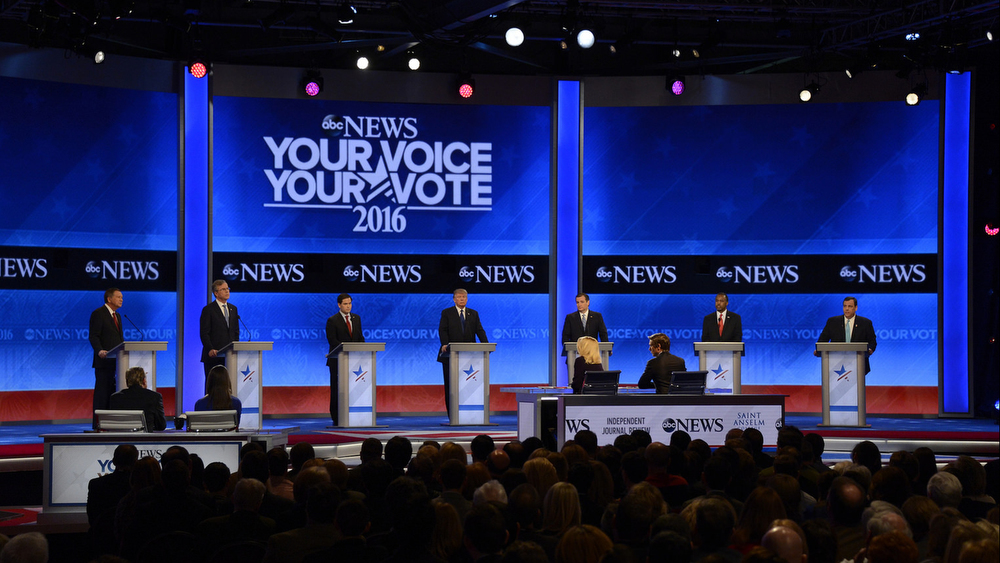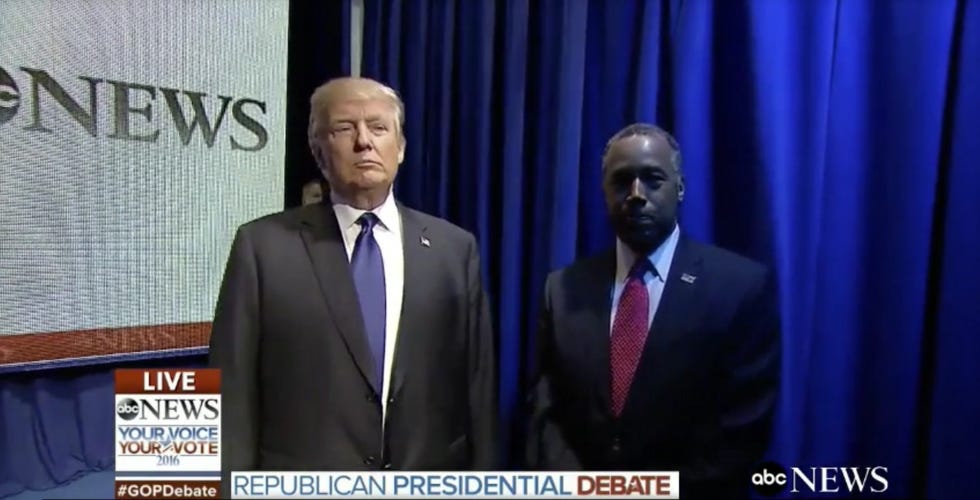Candidate Performance and Strategies

The presidential debate provided a platform for the candidates to showcase their policy positions, communication skills, and ability to engage with the audience. This analysis examines the performance of each candidate, focusing on their communication skills, composure, and strategic choices.
Communication Skills and Composure
The candidates’ communication skills and composure played a crucial role in their ability to connect with the audience and convey their message effectively.
- Candidate A demonstrated strong communication skills, articulating their positions clearly and concisely. They maintained a calm and composed demeanor throughout the debate, even when facing challenging questions or attacks from their opponent.
- Candidate B, on the other hand, struggled with their communication. They often spoke in a rambling manner, making it difficult for the audience to follow their arguments. Additionally, they appeared flustered at times, particularly when confronted with difficult questions or their opponent’s attacks.
Strategic Choices
The strategic choices made by the candidates during the debate were critical in shaping their overall performance and influencing the audience’s perception of their candidacy.
- Candidate A adopted a strategic approach of focusing on their policy positions and presenting a positive vision for the future. They avoided personal attacks and instead sought to highlight their own strengths and qualifications.
- Candidate B, in contrast, relied heavily on attack strategies, attempting to undermine their opponent’s credibility and policies. This approach, while potentially effective in the short term, may have alienated some viewers who prefer a more positive and constructive tone.
Strengths and Weaknesses
Each candidate demonstrated both strengths and weaknesses during the debate.
- Candidate A’s strengths included their strong communication skills, clear policy positions, and composed demeanor. However, they may have been perceived as lacking the necessary fire and passion to inspire the electorate.
- Candidate B’s strengths lay in their aggressive approach and their ability to challenge their opponent’s arguments. However, their communication style and reliance on attack strategies may have worked against them in the long run.
Impact on the Race, Abc presidential debate
The debate’s impact on the candidates’ standing in the race is difficult to assess definitively. However, based on the performance of each candidate, it is possible to speculate on potential outcomes.
- Candidate A’s strong communication skills and positive message may have resonated with undecided voters, potentially bolstering their support.
- Candidate B’s aggressive approach and communication difficulties may have alienated some voters, potentially damaging their standing in the race.
Impact and Analysis: Abc Presidential Debate

The presidential debate can have a significant impact on the election, influencing public opinion, voter sentiment, and media coverage, which in turn shapes the public perception of the candidates.
Public Opinion and Voter Sentiment
The debate can influence public opinion by providing voters with a platform to compare candidates’ positions on key issues and assess their leadership qualities. A strong performance in a debate can boost a candidate’s favorability ratings, while a poor performance can lead to a decline.
- For example, in the 2016 presidential election, the first debate between Hillary Clinton and Donald Trump was widely seen as a turning point in the race. Trump’s aggressive style and willingness to attack Clinton were seen by many as a refreshing change, while others found it off-putting. This debate helped to solidify Trump’s support among his base and energized his campaign.
- On the other hand, a candidate who is perceived as unprepared or lacking in substance may see their support erode after a debate. This was the case in the 2020 presidential election, when Joe Biden was widely praised for his performance in the first debate against Donald Trump. Biden’s calm and collected demeanor contrasted sharply with Trump’s chaotic and often rambling style, which may have helped to sway some undecided voters.
Media Coverage and Public Perception
The media plays a crucial role in shaping public perception of the candidates and their performances in debates. Media outlets often provide their own interpretations of the debate, highlighting certain moments and framing the candidates’ statements in a particular light.
- This can have a significant impact on how the public views the candidates, especially those who rely on news media for their information.
- For example, a candidate who is portrayed by the media as having won a debate may see their favorability ratings increase, even if the public’s perception of the debate is more nuanced.
Key Takeaways and Long-Term Implications
The debate can also have long-term implications for the election by shaping the narrative around the candidates and their campaigns.
- For example, a candidate who makes a major gaffe or fails to answer a key question effectively may face a difficult road to recovery.
- On the other hand, a candidate who delivers a strong and memorable performance can use the momentum from the debate to build support and gain traction in the race.
The ABC presidential debate was a lively affair, with candidates sparring over policy positions and vying for the public’s attention. It’s interesting to note that the debate was held on the same night that McDonald’s launched their latest McDonald’s Collectors Meal , which features iconic toys from past Happy Meals.
While the two events seem unrelated, both highlight the power of nostalgia and the ability to connect with a wide audience through familiar experiences. Perhaps the candidates could have learned a thing or two from the McDonald’s marketing strategy!
The ABC presidential debate offered a platform for candidates to address crucial issues facing the nation, including foreign policy. One such complex issue involves the Iranian-Israeli relationship, a long-standing source of tension in the Middle East. The candidates’ positions on this issue, ranging from diplomatic engagement to military deterrence, will undoubtedly shape their approach to foreign policy if elected.
